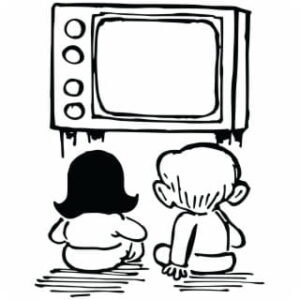by The Cowl Editor on November 7, 2019
Opinion

The Benefits of DWC beyond the Classroom
This week, I watched a television show and thought of class.
That is not something you usually hear in an everyday conversation, but after taking Development of Western Civilization, many students notice a connection between what they learn in class and the real world.
The Good Place is a popular sitcom on NBC that focuses on the afterlife. It takes a fun spin on questions of ethics and morality that may otherwise be confusing or hard to grasp.While many viewers may have some prior knowledge of philosophy, Providence College students will notice many familiar names.
The knowledge of philosophy gained through the DWC program helps in more than just the classroom. From Socrates to Kierkegaard, The Good Place talks about many of the most famous philosophers of all time.
In fact, one of the first episodes makes a joke that PC students in their first semester would understand; Eleanor, one character, asks her philosophy teacher, “Who died and put Aristotle in charge of ethics?” To which, the teacher responds, “Plato.” (This joke can also be seen on a door in the philosophy department!)
References to philosophy are made not only in this show, but also in everyday life. Life certainly becomes more enjoyable when you understand what people are referring to when they mention The Republic.
Additionally, students often find it amusing to turn on Jeopardy! and have the skills to answer questions that leave others baffled.
So, who said Civ wasn’t fun?
—Julia McCoy ’22

Too Much “Tea”
Sometimes it appears as though every other sentence uttered on a college campus contains at least one reference to “tea.” While the phrase “what’s the tea” is not inherently one that promotes gossip and rumors, how it is used often does just that.
Approaching a friend and telling them that you “have the tea” gives the appearance that your information is the “inside scoop” on a particular matter, and this often pertains to another person. It is this context that turns a perfectly harmless and sometimes amusing phrase into an indicator of a conversation based on talking about others behind their backs.
Similarly, asking for “the tea” from a friend implies that this individual has some unique information about a person or situation, specifically something which is not widely known. Using the expression in this way betrays our culture’s obsession with discussing information that is not necessarily meant for our ears.
In an interesting parsing of expressions, “that’s the tea” does not carry the same connotation, as it is widely placed at the end of a declarative opinion statement that one views as the correct or right way to think about something.
If you use any of the “tea” expressions, do not think you necessarily have to stop doing so. However, the next time you hear some variation of “what’s the tea,” ask yourself whether it is inciting a gossip-fueled conversation or truly a light-hearted comment emphasizing a personal opinion in a discussion.
—Joshua Chlebowski ’21